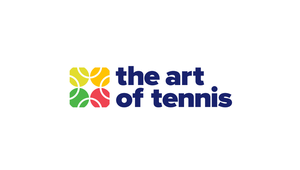Personality Types


Personality Profiling for Tennis Players
Your personality type will effect the way you process information, respond to training and react during a competitive environment.
History
Personality profiling has been around since 480BC where the ancient Greek Philosopher Hippocrates identified 4 unique personality types in his work, “Nature of Man.”
This evolved when Carl Jung, the famous Swiss Psychiatrist, later built upon this model to show that individuals show a clear distinction between introversion and extroversion. Introverts are people who prefer their internal world of thoughts, feelings, fantasies, dreams, and so on, while extroverts prefer the external world of things and people and activities.
The 16 types are typically referred to by an abbreviation of four letters—the initial letters of each of their four type preferences (except in the case of intuition, which uses the abbreviation N to distinguish it from Introversion). For instance:
INFP: introversion (I), intuition (N), feeling (F), perception (P)

Extraversion
- A player with an extraverted characteristic will be energised by people.
- May appear more enthusiastic than their introversion counterparts and tend to act first and think second.
- Will enjoy variety, action and achievement.
- They will respond to high levels of motivation
Introversion
- The energy of introverts is inward toward concepts and ideas. They need little external stimulation – and in fact they can easily be overstimulated.
- They will think first and act second.
- Responds best by thinking deeply about what is required.
Sensing
- Sensors pay attention to both immediate data from their five senses and from their own direct experiences.
- They create meaning from conscious thought, rather than trusting their subconscious, limiting their attention to facts and solid data.
- They focus on what is immediate, practical and real, and live life as it is rather than trying to change the world.
- They like logic and tend to pursue things in a clear sequence. At work, they will have a clear schedule and like to use their proven skills in tactical situations.

Intuition
- Intuitors process data more deeply than sensors and are happy to trust their subconscious and ‘sixth sense’, gut feel, intuition or whatever you want to call it.
- They are good at spotting patterns and taking a high-level view, as opposed to digging into the detail.
- They like ideas and inspiration and tend to have a focus on the future, where they will plan to change the world rather than continue to live in the imperfect present.
Thinking
- Thinkers decide based primarily on logic, and when they do so, they consider a decision to be made. They tend to see the world in black and white and dislike fuzziness.
- Perhaps because people are so variable, they focus on tangible things, seeking truth and use of clear rules.
- At work, they are task-oriented, seek to create clear value. Interacting with them tends to brief and business-like.
Feelers
- Feelers decide based primarily through social considerations, listening to their heart and considering the feelings of others.
- They see life as a human existence and material things as being subservient to this. They value harmony and use tact in their interactions with others.
- At work, they are sociable and people-oriented and make many decisions based on values (more than value).
Judgers
- Judgers approach life in a structured way, creating plans and organizing their world to achieve their goals and desired results in a predictable way.
- They get their sense of control by taking charge of their environment and making choices early.
- They are self-disciplined and decisive, and seek closure in decisions. When they ask for things they are specific and expect others to do as they say. They enjoy being experts.

Perceivers
- Perceivers perceive structure as being more limiting than enabling. They prefer to keep their choices open so they can cope with many problems that the know life will put in their way.
- They get their sense of control by keeping their options open and making choices only when they are necessary.
- They are generally curious and like to expand their knowledge, which they will freely acknowledge as being incomplete. They are tolerant of other people’s differences and will adapt to fit into whatever the situation requires.
- At work, they tend to avoid or put off decisions and like most the exploration of problems and situations. At work, they decide quickly and clearly and work to get the job done.

Conclusion
This type of knowledge is very handy to know about yourself, your opponent and anyone you are helping out in tennis.
At Scarborough Tennis Academy we use Myers Briggs testing to help see how players will learn fastest. It also helps with communication lines between coach and player.
If you’re interested in getting your Myers Briggs test done contact rick@scarboroughtennis.com.au
Have a think about what you are………
Cheers
Rick Willsmore
* References (Some Information taken from Wikipedia and www.themindbehind.net)


















